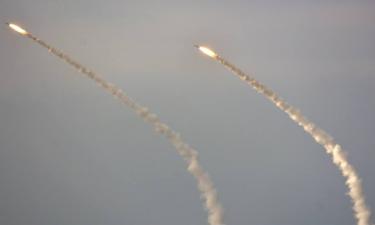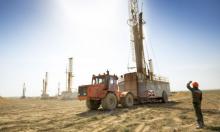Bardella or Melenchon? Who will be the next anti-Ukrainian prime minister of France?
Emmanuel Macron's project "Ukraine, not France" is coming to an end. Whatever the outcome of the second round of parliamentary elections may be, the prime minister of France will share anti-Ukrainian views.
11 million votes — the support that Macron never had
A 40-year record turnout (66.7%) in the first round of early parliamentary elections in France outlined the undoubted advantage of Marine Le Pen's National Rally Party. She won the first round of legislative elections with 33% of the vote. Macron's coalition gained 20%, the left bloc — 28%, the Republicans — 7%.
The number of votes that the National Rally received was more than 11 million. This exceeds Macron's result in the first round of the presidential elections of 2017 and 2022 (less than 10 million votes in both cases).
However, the question remains open whether the National Rally will receive an absolute majority of seats in the lower house of parliament in order to select a prime minister who distributes finances.
Nationalists may achieve absolute majority
Parliamentary elections in France are held according to a majoritarian system. In the first round, people vote on lists from each party that take part in elections. Candidates who do not overcome the 50% threshold will continue the race in the second round (to be held on July 7). The three candidates who received the most votes in the first round qualify to take part in the second round. According to most recent reports, 39 deputies from the National Rally Party, 32 deputies from the leftist New Popular Front, and two deputies from the Macron coalition won the first round.
Candidates from the French president's coalition were eliminated in half of 577 electoral districts. It is already clear that Macron's coalition faction in parliament will be reduced from 250 to less than 100 MPs.
On Sunday, June 30, the president invited the candidates whose parties came third for the second round to leave the race. Macron urged them to vote either for his party or the left bloc not to let the nationalist candidate win. Yet, Francis Dubois, the Republicans candidate, said that he would not withdraw his candidacy in a triangle with the candidate from the National Rally, Maïtey Pouget.
To get an absolute majority (289 seats), Le Pen's party will have to enter into an agreement with deputies from the right-wing conservative Republicans party. If this works out, National Rally's Jordan Bardella will take office as Prime Minister.
Bardella, Melenchon to cut aid to Ukraine
Marine Le Pen criticized Macron's support for Volodymyr Zelensky this year, especially his proposal to send French troops to Ukraine.
"Macron plays a military leader and talks about the lives of our children with such nonchalance," she said in March.
Macron is not going to face anything good as a result of the parliamentary elections in France. Even if he concludes a coalition with the left bloc, the prime minister will be a leftist, anti-Ukrainian politician.
Jean-Luc Mélenchon is the central figure in the left-wing coalition. In the event of a coalition with Macron, he will become Prime Minister. In a TV interview on France 2, he was asked who the real aggressor in the current crisis was. Mélenchon replied: "NATO, without a doubt."
"The United States of America decided to make Ukraine part of NATO, and Russia felt humiliated by the threat. In the current crisis situation, the United States cannot decide on its prime enemy — China or Russia…What are they doing? They want Ukraine to be incorporated into NATO. We, the French, are not interested [in such plans], we don't care,” Mélenchon said.
What is needed is "peace without winner and loser, with mutual guarantees of security,” Mélenchon recently noted.
His party, France Unbowed, voted against increasing aid to Ukraine; France Unbowed party also stands against Ukraine's admission to the EU.
Living standards in France have been declining. Yet, Emmanuel Macron allocated 3.8 billion euros in aid to Zelensky. In February, the French President promised to allocate another 3 billion euros to Kyiv for 2024. Many in France believe that it is sanctions against Russia that caused food and energy prices to rise. Starting in July, average gas bills in France will increase by almost 12% per month.
Subscribe to Pravda.Ru Telegram channel, Facebook, RSS!





